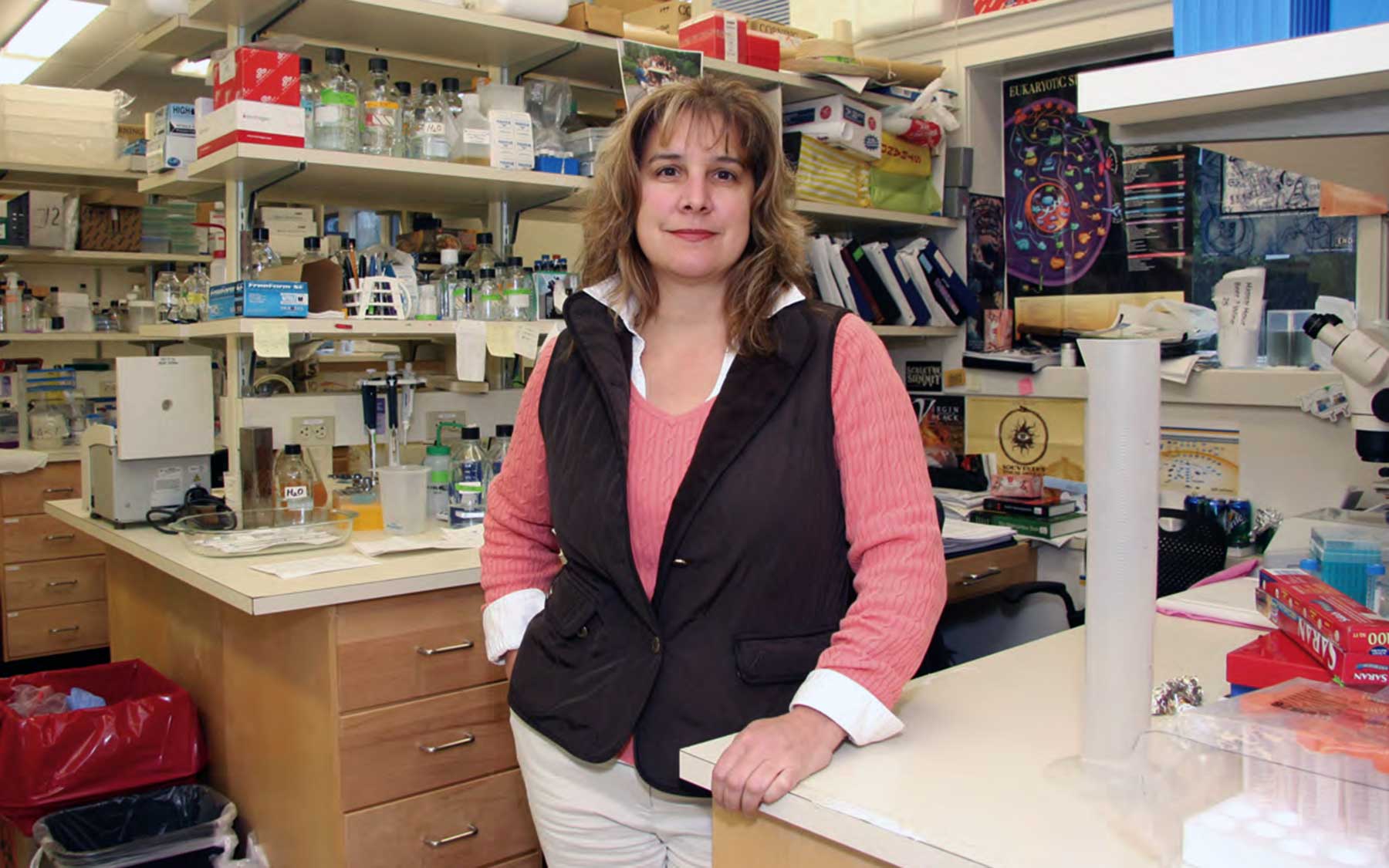Mills has successfully used this technique (pdf) to uncover two powerful cancer-related genes: p63, which plays a role in development, aging and suppressing tumor formation; and CHD5, a long-elusive tumor suppressor that is now known to be mutated or deleted in multiple types of cancer.
Mills recently used chromosome engineering to develop a new mouse model of autism that provided the first functional evidence of autism’s genetic basis, showing that the deletion of a 27-gene cluster on chromosome 16 leads to the development of autism-like features in mice. The mice, whose behavior has been documented and analyzed using state-of-the-art video capture, will be invaluable for identifying new diagnostic methods for autism before it becomes a full-blown syndrome as well as for designing clinical interventions. Mills explains all these advances and more in the lecture titled, “Where will the future of genetic engineering take us?”
